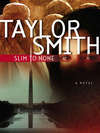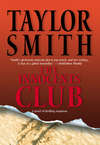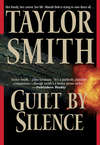Kitabı oku: «Deadly Grace», sayfa 3
Bir şeyler ters gitti, lütfen daha sonra tekrar deneyin
₺68,77
Türler ve etiketler
Yaş sınırı:
0+Litres'teki yayın tarihi:
28 aralık 2018Hacim:
541 s. 2 illüstrasyonISBN:
9781474024471Telif hakkı:
HarperCollins





